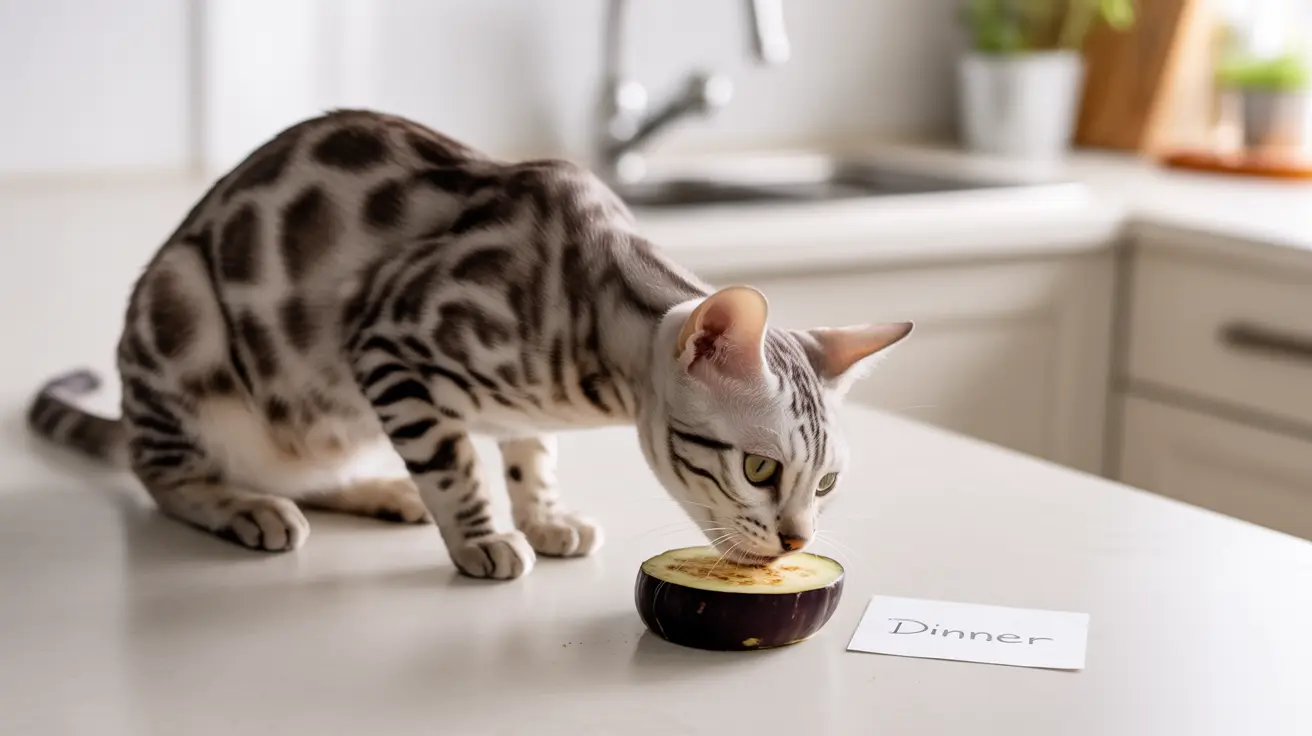If you're wondering whether cats can eat eggplant, the answer is a firm no. Eggplant, also known as aubergine, belongs to the nightshade family and contains several compounds that are toxic to cats. Despite being nutritious for humans, this vegetable poses significant health risks to our feline friends, even in small amounts.
In this comprehensive guide, we'll explore why eggplant is dangerous for cats, what happens if your cat accidentally consumes it, and what steps you should take in case of ingestion.
Understanding Eggplant Toxicity in Cats
Eggplant contains several harmful compounds that make it unsafe for feline consumption. The primary concern is solanine, a glycoalkaloid toxin found in all nightshade family plants. Cats lack the necessary enzymes to process this compound effectively, making them particularly vulnerable to its toxic effects.
Key Toxic Components
- Solanine (primary toxin)
- Oxalic acid (affects calcium absorption)
- Cyanide derivatives (in small amounts)
Dangerous Effects of Eggplant on Cats
When cats consume eggplant, they may experience various symptoms ranging from mild discomfort to severe illness. The severity often depends on the amount ingested and the cat's size and overall health.
Common Symptoms of Eggplant Poisoning
- Gastrointestinal distress (vomiting, diarrhea)
- Lethargy and weakness
- Loss of appetite
- Irregular heart rate
- Neurological symptoms (confusion, tremors)
- Dehydration
- Fever
What to Do If Your Cat Eats Eggplant
If you discover your cat has consumed any amount of eggplant, immediate action is crucial:
- Remove any remaining eggplant
- Monitor your cat closely
- Document symptoms and timing
- Contact your veterinarian immediately
- Keep your cat hydrated if possible
Prevention and Safe Alternatives
The best approach is prevention. Keep eggplant and other nightshade vegetables out of your cat's reach. If you're looking to add variety to your cat's diet, consider these vet-approved alternatives:
- Cooked plain pumpkin
- Small amounts of cooked carrots
- Steamed green peas
- Commercial cat-specific vegetables
Frequently Asked Questions
Can cats safely eat eggplant or is it toxic to them?
No, eggplant is toxic to cats due to compounds like solanine, oxalic acid, and cyanide derivatives. Even small amounts can cause serious health issues.
What symptoms should I watch for if my cat accidentally eats eggplant?
Watch for vomiting, diarrhea, lethargy, loss of appetite, irregular heart rate, confusion, tremors, and fever. Any of these symptoms warrant immediate veterinary attention.
Why is eggplant harmful to cats even when cooked?
Cooking only reduces but doesn't eliminate the toxic compounds in eggplant. The primary toxin, solanine, remains present even after cooking, making it unsafe for cats in any form.
How should I respond if my cat consumes eggplant at home?
Contact your veterinarian immediately, document when and how much was consumed, and monitor your cat for symptoms. Keep your cat hydrated and don't induce vomiting unless instructed by a professional.
Are there any safe vegetable alternatives that I can give my cat?
Yes, cats can safely eat small amounts of cooked pumpkin, carrots, or green peas. However, remember that cats are obligate carnivores and don't require vegetables in their diet.
Remember, when it comes to your cat's diet, it's always better to err on the side of caution. Stick to veterinarian-approved cat food and treats, and always consult with your vet before introducing any new foods to your cat's diet.






